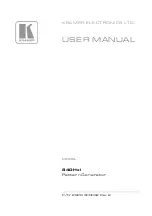
7
SPECIFICATIONS
STATIONARY EMERGENCY GENERATOR
Refer to the data plate on the generator for rated watts, amperes,
frequency, voltage, phase and other pertinent information.
ENGINE
General:
Cylinders and Arrangement .....................................................V-10
Displacement ......................................................... 6.8 L (415 in3)
Bore................................................................. 90.2 mm (3.55 in.)
Stroke ............................................................ 105.8 mm (4.16 in.)
Compression Ratio............................................................... 9-to-1
Number of Main Bearings .............................................................6
Aspiration
SG060 ................................................... Naturally Aspirated (NA)
SG060 .................................... Naturally Aspirated Gearbox (G/B)
Governed Engine Speed .......................................See DATA PLATE
Type of Valve Lifters ...............................................Hydraulic Roller
Cylinder Head ................................................................ Aluminum
Pistons ..................................................................Aluminum Alloy
Crankshaft .................................................................. Forged Steel
Number of Flywheel Teeth ........................................................164
Engine Lubrication System:
Type of Oil Pump ....................................................................Gear
Oil Filter ..............................................Spin-on, Full Flow, Cartridge
Crankcase Oil Capacity ......................................6.8 L (7 U.S. qts.)
Fuel System:
Type of Fuel .................................................. Natural Gas/LP Vapor
Consumption:*
Rated
Fuel
25%
50%
75%
100%
Type Freq.
System Load Load Load Load
SG060 60 Hz NG 231.25 462.5 693.7
925
SG060 60 Hz LP 83.5/2.3 167/4.5 250.5/6.8 334/9.1
*Given in ...
Diesel: gal/h; Natural Gas (NG): cfh; Liquid Propane Vapor (LP): cfh
Cooling System:
Type................................................. Pressurized, Closed Recovery
Coolant Capacity
System .................................................... 23.7 L (6.3 U.S. gals.)
Engine ..................................................... 12.3 L (3.3 U.S. gals.)
Coolant Flow Per Minute (60 Hz) ................ 148 L (39.2 U.S. gals.)
Heat Rejection to Coolant (60 Hz) ............................218,000 Btu/h
Cooling Fan ................................................................. Pusher Type
Diameter of Fan.............................................. 558.8 mm (22.0 in.)
Cooling Airflow Required (60 Hz) ............ 5,600 cfm (159 m
3
/min.)
Recommended Coolant ............................................ See “Coolant”
Combustion Airflow Required (60 Hz) ......... 185 cfm (5.2 m
3
/min.)
Exhaust System:
Exhaust Flow at Rated Output at 60 Hz ...... 679.5 cfm (19 m
3
/min.)
Exhaust Outlet Size (2) ............................................. 2.5 in. (N.P.T.)
Exhaust Temperature at Rated Output ................. (565° C) 1,050° F
Engine Electrical System:
DC Alternator Output ....................................... 15 amps at 12 volts
Starter Motor ...................................................... 12-volt DC, 3 kW
Recommended Battery ....................................12-volt, 90 Ah, 27 F
Ground Polarity ........................................................... Negative (–)
ENGINE OIL RECOMMENDATIONS
The unit has been filled with 15W-40 engine oil at the factory. Use
a high-quality detergent oil classified “For Service CC, SD, SE or
SF.” Detergent oils keep the engine cleaner and reduce carbon
deposits. Use oil having the following SAE viscosity rating, based
on the ambient temperature range anticipated before the next oil
change:
Temperature
Oil Grade
(Recommended)
Above 80º F (27º C)
SAE 30W or 15W-40
32º to 80º F (-1º to 27º C)
SAE 20W-20 or 15W-40
Below 32º F (0º C)
SAE 10W or 15W-40
COOLANT
Use a mixture of half Propylene glycol base antifreeze and half
de-ionized water. Use only de-ionized water and Propylene glycol
antifreeze. When adding coolant, always add the recommended
50-50 mixture.
Do not remove the radiator pressure cap
while the engine is hot or serious burns from
boiling liquid or steam could result.
Propylene glycol base antifreeze is poison-
ous. Do not use mouth to siphon coolant
from the radiator, recovery bottle or any
container. Wash hands thoroughly after han-
dling. Never store used antifreeze in an open
container because animals are attracted to
the smell and taste of antifreeze even though
it is poisonous to them.
Do not use any chromate base rust inhibitor
with propylene glycol base antifreeze. Using
any high silicate antifreeze boosters or addi-
tives also will cause overheating. We also
recommend that any soluble oil inhibitor is
NOT USED for this equipment.
General Information
Summary of Contents for 005342-6
Page 19: ...17 17 17 Notes ...
Page 20: ...18 Installation Diagram Drawing No 0G6991 B ...
Page 21: ...19 Drawing No 0G6991 B Installation Diagram ...
Page 27: ......
Page 29: ......
Page 31: ......
Page 33: ......
Page 35: ......
Page 37: ......
Page 39: ......
Page 41: ......
Page 43: ......
Page 45: ......
Page 46: ......
Page 47: ......
Page 48: ......
Page 49: ......
Page 50: ......
Page 51: ......
Page 52: ......
Page 53: ......
Page 54: ......
Page 55: ......
Page 56: ......
Page 57: ......
Page 58: ......
Page 59: ......
Page 60: ......
Page 61: ......
Page 62: ......
Page 63: ......
Page 64: ......
Page 65: ......
Page 67: ......










































